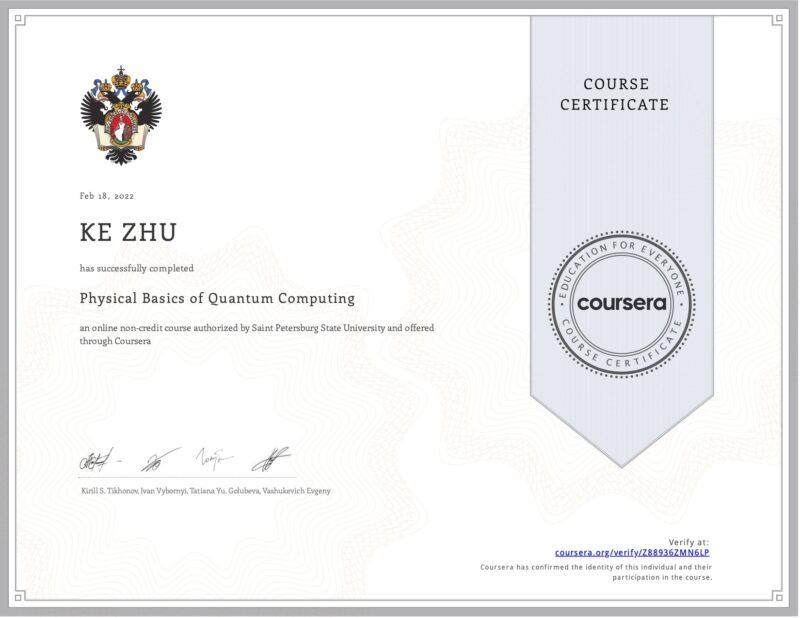Physical Basics of Quantum Computing
Saint Petersburg State University
It is challenging for lecturers to jam so much knowledge in one course, meanwhile equivalently challenging for learners to grasp the knowledge well.
Don’t try this course until you have gotten a solid background in quantum mechanics. I have to admit the first week’s contents cost me more time than I expected. The week actually is a summary and even an extension of the basics of quantum mechanics (you need to learn somewhere else).
The second week covers one cornerstone of all quantum computations: quantum entanglement. You will find elaboration of Bell states and related EPR paradox. It is crucial to understand the absence of determinism and the observables’ dependence on measurements.
Based on the previous topics, we are ready to talk about logic elements / gates. Classical counterparts were reviewed first, with an interesting principle: irreversible elements lead to loss of information and realization of thermal energy, which may arouse your interest in further studying of thermodynamics and information theory. The quantum information transmission technologies: superdense coding and quantum teleportation are not crazy ideas any more, they has been realized for years.
Next a few quantum algorithms are taught: Duetsch-Jozsa, Shor, Fourier tansform, etc. They are reasons why we believe the impossible become possible, and that quantum may change the landscape of computation. In the final module, the course covers the basics of quantum error correction theory, using the 3-bits coding.
Upon your completion of this course, quantum computing won’t be just hype or headlines in your mind, I have confidence that you will have faith in it, and deeply believe the quantum computing will be the next big thing.
Quick Recap
My Certificate

https://coursera.org/share/a9002230840f30b448c4b904e16598b8
I am Kesler Zhu, thank you for visiting my website. Checkout more course reviews at https://KZHU.ai